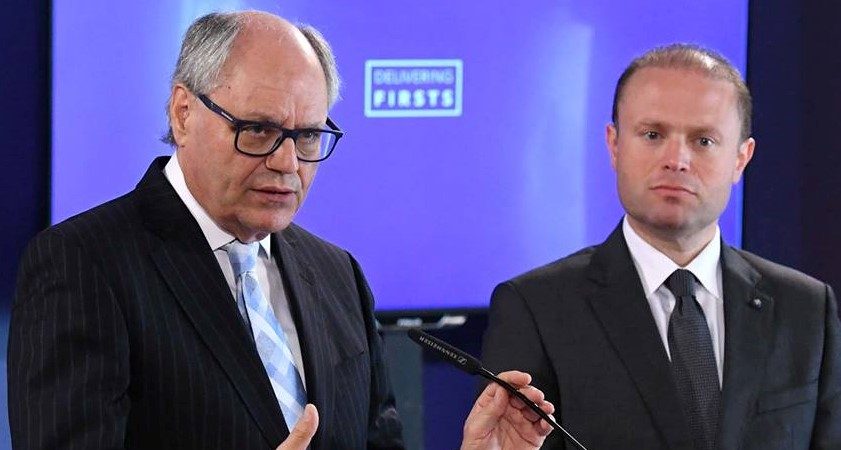Finance Minister Edward Scicluna has again raised a few eyebrows, this time in the US, on the Maltese government’s willingness to join China’s Belt and Road infrastructure investment ‘initiative’.
CNBC pointed out that when Italy expressed its willingness to join the project earlier this month, the White House said this could potentially hurt its international reputation.
CNBC thought that Malta decided to join after Italy, announcing it on Wednesday as “another European country weighing the possibility of joining China’s international infrastructure investment plan”.
In fact, the Maltese government announced its intention to join last November.

Chinese President Xi Jinping is promoting a network of Chinese-financed roads, pipelines, ports, power plants and other infrastructure across Asia, the Middle East, Africa and Europe. It is the Chinese President’s master plan to project Chinese power, influence and trade across much of the world.
Malta’s willingness to join the project has links to Shiv Nair – the government consultant blacklisted by the World Bank, twice.
Read: On a Belt and Road, to where?
The US government did not take Italy’s intentions lightly, so Malta’s Finance Minister stepped in to allay fears: “One has to be wary of any country, especially with political ambitions or any sort of ambitions, but that’s life,” Scicluna told CNBC in Brussels.
Scicluna, who was so concerned that he could not catch a taxi in South America without being asked about corruption in Malta, and blamed Opposition MPs and civil society for calling it out, told CNBC:
“You have to be careful, but it doesn’t mean you say no to any business, because of certain prejudices, or this, or that, or because someone is pressuring you. For a country to survive and to be competitive, especially a small country, we need to have diversification,” Scicluna said.
The diversification created by his government has led to a cash-for-passport scheme harshly criticised in Brussels, an energy deal with Azerbaijan and China at the centre of corruption allegations, visas to Algeria and Libya abused for profit with corruption allegations centring on people sitting in the Prime Minister’s Office, an igaming industry where lax enforcement led to arrests by Italian authorities, a bank whose chairman was arrested in the US and another that has left its clients stranded because of its dodgy deals. And that’s just what’s relevant to this case, because there’s a long list of other dubious initiatives called out by the press.
Scicluna says you can’t say no business based on prejudice. But it is an undeniable fact that the countries the Labour government chose to become cosy with from day one have led the country from one scandal to another.
China’s ‘One Belt One Road’ project
Five years ago Chinese President Xi Jinping began promoting a network of Chinese-financed roads, pipelines, ports, power plants and other infrastructure across Asia, the Middle East, Africa and Europe. It is the Chinese President’s master plan to project Chinese power, influence and trade across much of the world.
The ‘One Belt One Road’ initiative has been criticised after it led to countries taking on heavy debt for projects developed and implemented by Chinese companies – referred to as China’s ‘debt trap diplomacy’.
Malaysia has suspended or canceled Chinese projects worth more than $22 billion, and Malaysians recently threw out their ruling party, for the first time, because of anger about Chinese encroachment. Leaders in Sri Lanka and the Maldives have fallen for similar reasons.
Thailand and even Pakistan (one of China’s closest allies) have criticised Chinese lending terms. And Myanmar has severely scaled back a $10 billion port scheme.
The Economist warned that Malaysia’s rethink of Chinese belt-and-road projects has lessons for other countries: “China is not used to recipients of its largesse challenging the terms on which it is offered. Yet growing numbers of them are struggling with debts to Chinese entities taken on to fund Chinese-staffed projects”.
Critics see a deliberate strategy of throwing money at governments as a way for China to gain leverage over smaller countries to gain diplomatic support or strategic facilities.












